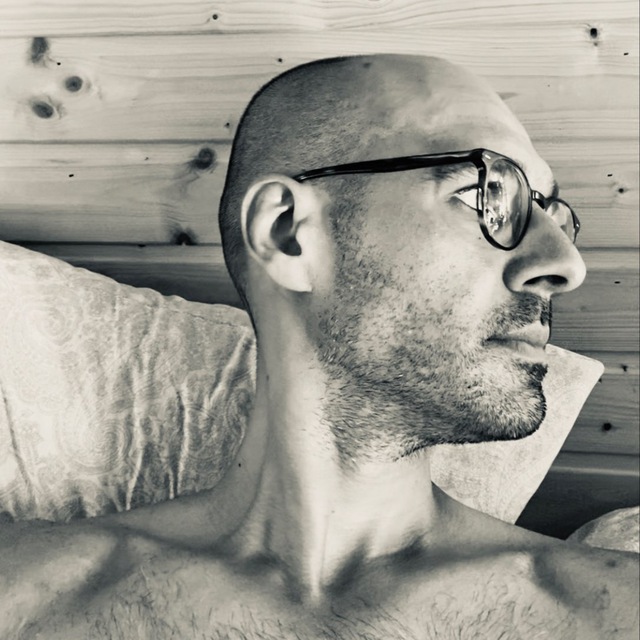Comments
Check out our elevator pitch or sign in
Next Up...
Hopf Fibration Explained
Original Video Description
Hopf fiber bundle topology is taught as simply as possible. Physicist Roger Penrose called the Hopf fibration, "An element of the architecture of our world." Essential in at least 8 different physics applications, the Hopf fibration is a map from a hypersphere in 4D onto a sphere in 3D. Many visualizations are displayed herein. Mathematician Eric Weinstein commented on the structure on Joe Rogan's podcast as, "The most important object in the entire universe."
If you're not yet familiar with higher dimensional shapes, you may want to first watch my video explaining a 4D hypercube known as the tesseract:
https://www.youtube.com/watch?v=YGmQe85cBeI
The initial outline for this video was over 25 minutes, so I trimmed details of n-spheres for the sake of brevity. Including here for those interested:
S0 0-sphere | Pair of points | Bounded by lines
S1 1-sphere | Circle | Bounded by pairs of points (S0)
S2 2-sphere | Sphere | Bounded by circles (S1)
S3 3-sphere | Hypersphere | Bounded by spheres (S2)
So the pair of points at the ends of a 1D line segment is considered a 0-sphere, or S0. It's hard to visualize, but a straight line is an arc of a circle whose radius is infinite.
Now, a circle is bounded by those pairs of points. We say a circle is S1, or a 1-sphere, sitting in 2D space.
A sphere is bounded by circles. We say a sphere is S2, or a 2-sphere, sitting in 3D space.
You are probably noticing an important pattern here. Each of these structures are one dimension lower than the Euclidian space they are embedded within. This is because we are only concerned with the boundaries of each shape.
So for a circle, we look at just the 1-dimensional circumference. Thus, S1. For a sphere, the surface is actually 2-dimensional. Thus, S2.
Now, we are navigating beyond the limits of human perception. A hypersphere is bounded by spheres. We say a hypersphere is S3, or a 3-sphere, sitting in 4D space. This is technically impossible to visualize.
At 2:58, I've included two visualizations of a hypersphere. The first is the shadow of a wire-frame surface of a hypersphere, projected in 3D. A perfect model would be an opaque object, so this cage gives you a sense of the hypersphere composed of spheres. The second is a highly polished version with a few vertices in view. Neither version is perfect, but they are the next best things compared to Hopf maps:
https://commons.wikimedia.org/wiki/File:Hypersphere.gif
Seemann (2017) https://vimeo.com/210631891
🚩 Nerd Alert 🚩 The interactive Hopf map visualizer by Nico Belmonte (@philogb) http://philogb.github.io/page/hopf/#
 Andreas
AndreasThe DARK SECTOR: Is there an Aether?
 Andreas
AndreasViktor Schauberger & Implosion, Cymatics & Free Energy
Viktor Schauberger (1885–1958) was an Austrian forester, inventor, and naturalist known for his pioneering ideas on water management, energy generation, and biomimicry. He observed natural processes, particularly the movement of water in rivers and forests, and developed theories and technologies inspired by nature's principles.
Key Concepts & Contributions:
Water as a Living Element
Schauberger believed water was a living organism that must flow naturally (in vortices/spirals) to stay healthy.
He opposed straight, channelized rivers, arguing they disrupted water's energy and led to environmental damage.
Implosion Technology
Unlike conventional explosion-based engines (e.g., combustion), Schauberger proposed implosion—using inward-spiraling forces to create energy.
His Repulsine (a flying disc-like device) and other vortex-based machines aimed to harness this principle.
Log Flumes & River Engineering
Designed curved wooden flumes to transport logs efficiently, mimicking natural water flow.
Advised against concrete in river regulation, promoting natural meanders and gravel beds.
Copper in Agriculture & Water Revitalization
Used copper tools to enhance water quality and soil fertility, believing certain metals interacted beneficially with water's energy.
Eco-Technology & Free Energy
Explored concepts like "levitation" through vortex dynamics, leading to speculation about anti-gravity devices (though much remains unverified).
Legacy & Controversy:
Schauberger's work was suppressed during WWII (Nazis reportedly forced him to research unconventional propulsion).
Modern permaculture, vortex water revitalization, and eco-engineering movements cite his ideas.
Some claims (e.g., free energy devices) remain disputed or unproven.
Famous Quotes:
"Comprehend and copy nature!"
"Water is a living substance."
 Andreas
Andreas